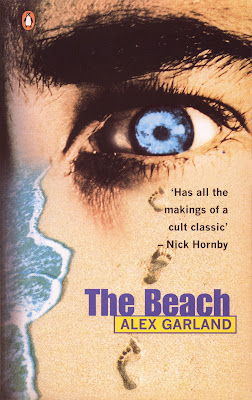Book #13
The Beach by Alex Garland
The Khao San Road, Bangkok - first stop on the backpacker trail. On Richard's first night there a fellow traveller slits his wrists, leaving Richard a map to "the Beach".The Beach is a legend among young travellers in Asia: white as sands circling a lagoon hidden from the sea, coral gardens and freshwater falls surrounded by jungle. In this earthly paradise, it is rumoured, a select community lives in blissful innocence. For Richard, haunted by the glamour of Vietnam war movies, a trek into unknown Thai territory is irresistible. He was looking for adventure. Now he’s found it.
Given my love for Lord of the Flies, it’s quite a conundrum that I haven’t read this till now. The similarities within the two novels struck me endlessly; despite the difference in the ages of the characters, and the contrast between a chosen haven or a forced one.
Of course, the nuances of governing a small society of our own are fascinating. Survival, leadership, rebellion and hardship all have to be navigated, and it’s a true joy here to see things develop and adapt. Just like the real world, unexpected problems still arise - it’s not all coconuts and joints - and seeing how changing circumstances change the governance and relationships within the camp is delectable. Human reactions to confusion and chaos are heavily varied, and there was something voyurisitc in being allowed to watch.
Garland’s prose is engaging, despite our narrator becoming slowly both unlikable and unreliable as the pressures of his secret new home begin to crowd his mind. It’s an incredibly unsettling read as we discover the psychological and indeed physical drawbacks to what is considered utopia. Garland doesn’t hold back on the horrors, and although I’d rather stay at home than be living on this beach even in the more glorious times, we see a heavy contrasting emphasis on descent and ruin.
There’s interesting commentary on the desire to escape a built-up world teeming with people and find paradise. But after reading this, I wonder if paradise can exist if we, as humans, descend upon it, bringing our own biases, habits, differences, and rules.

